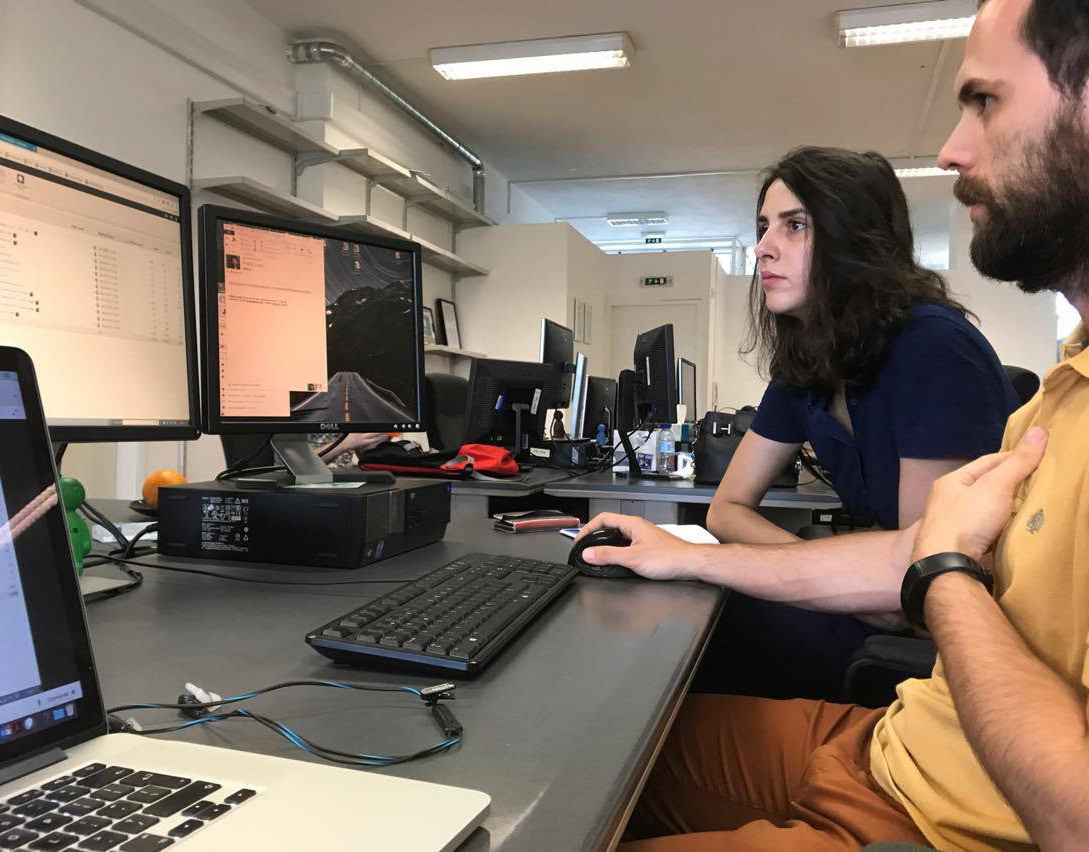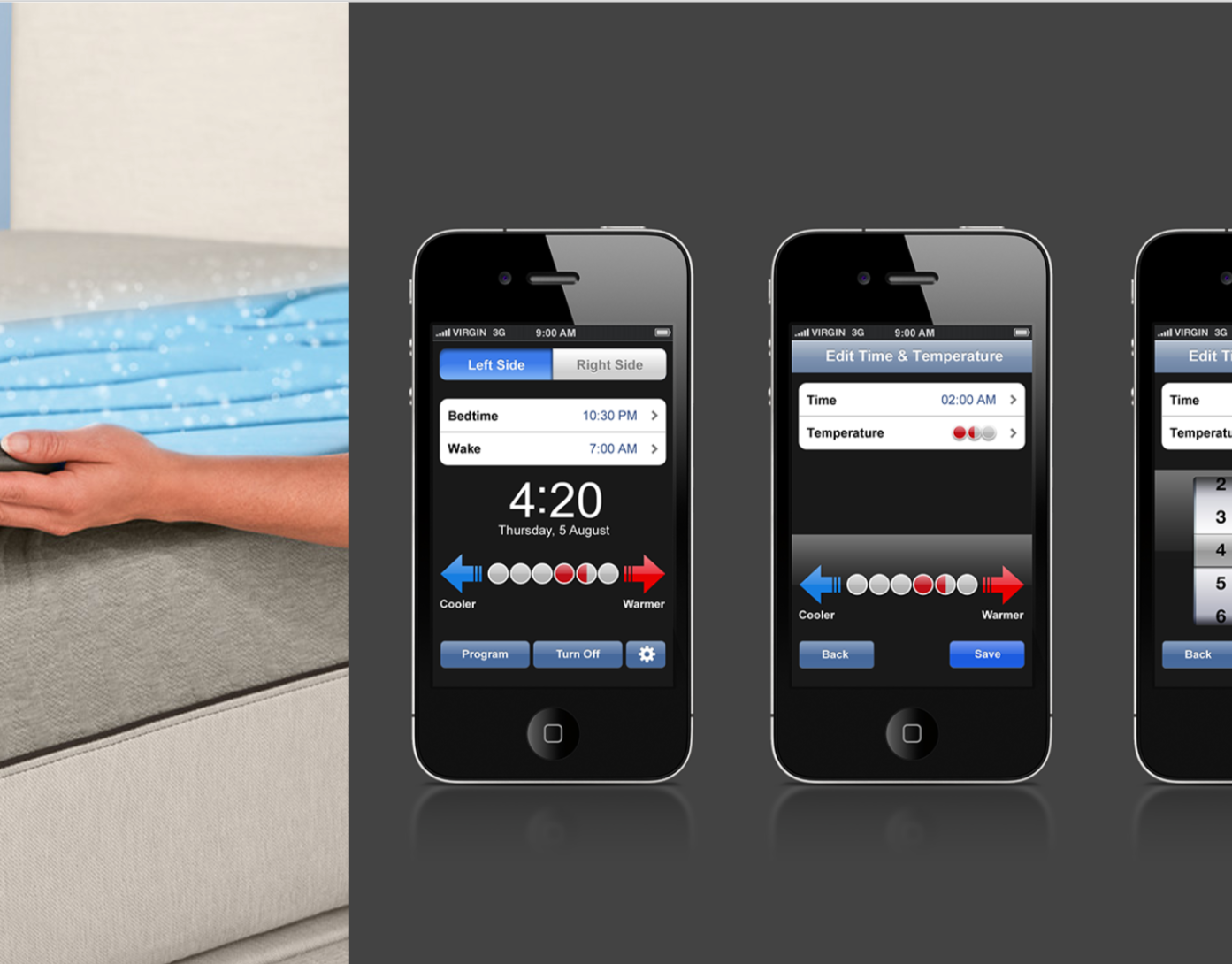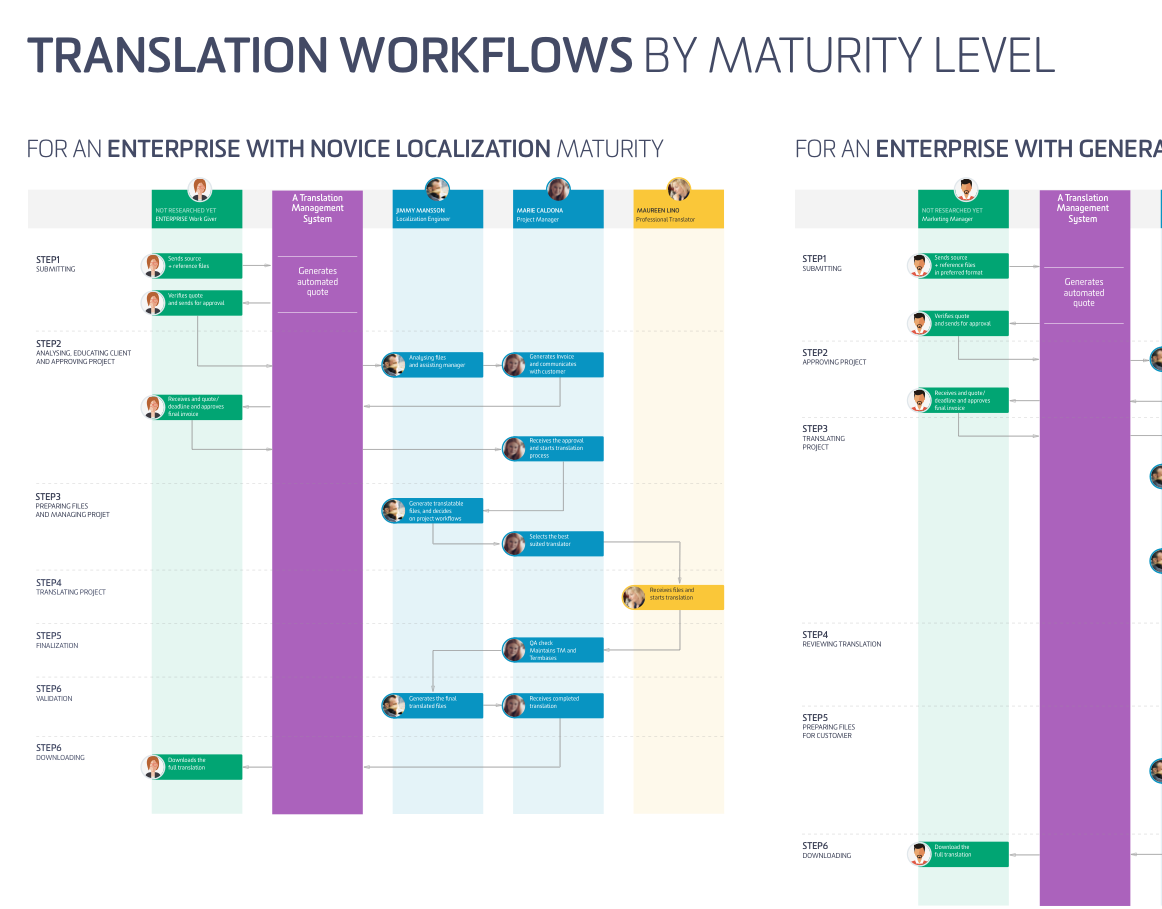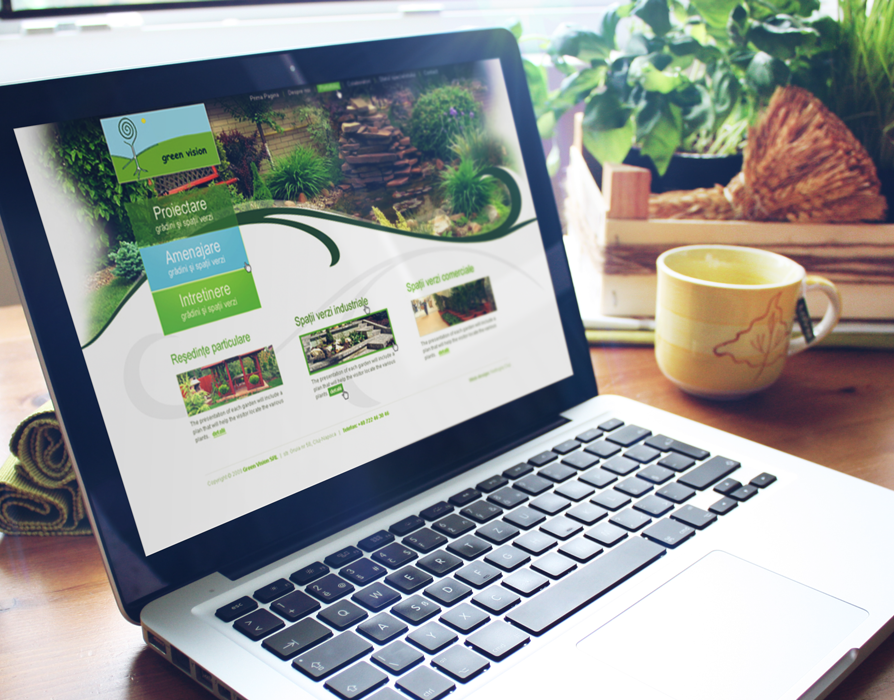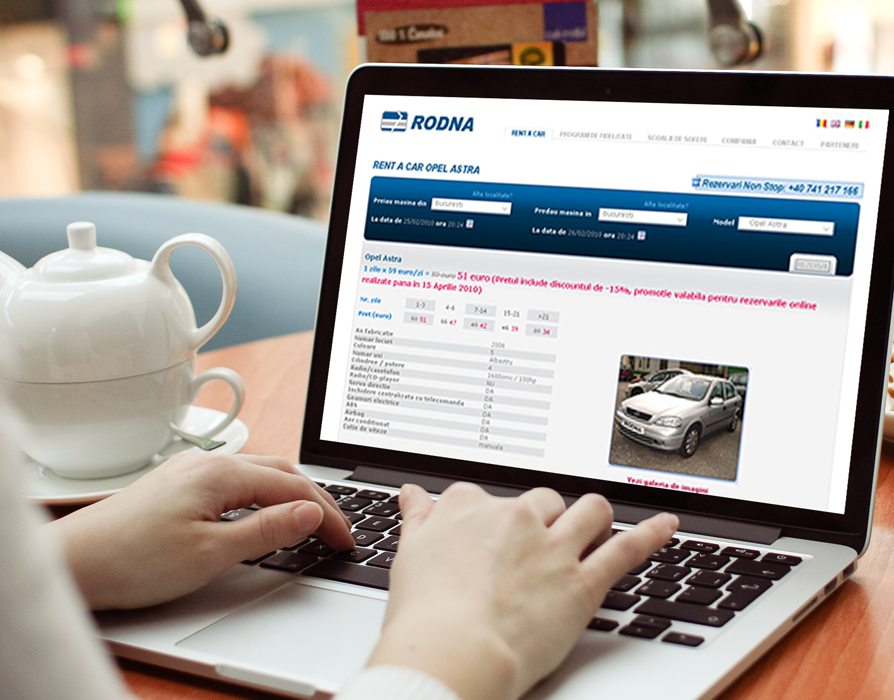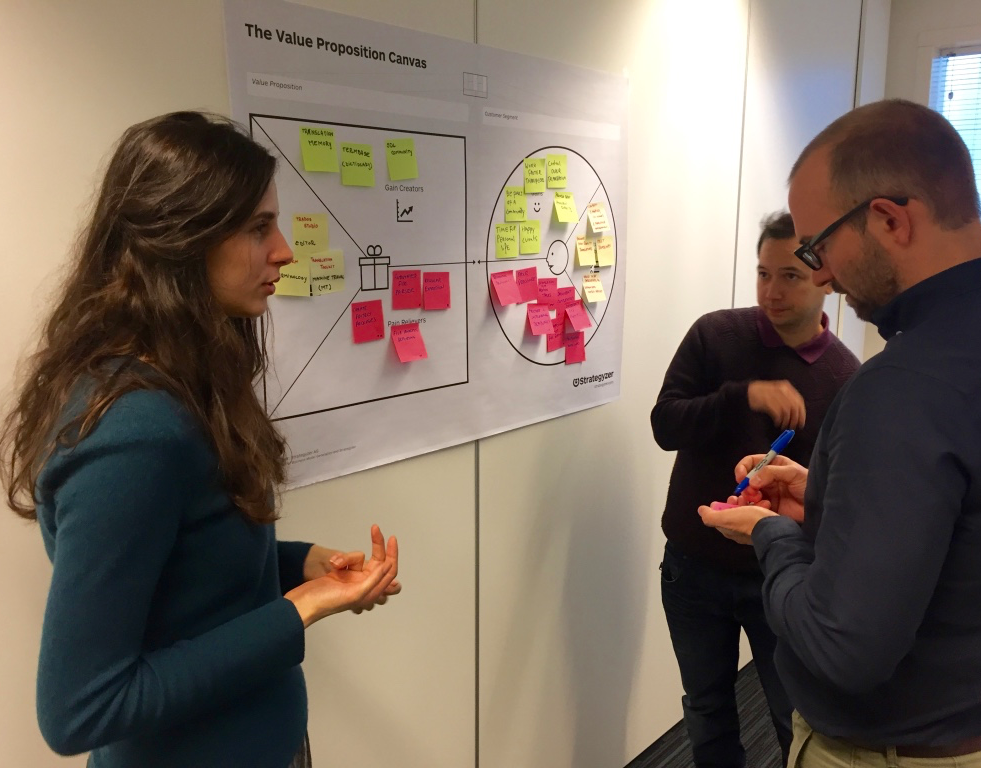Here's how I led XD/PM/PD core discovery team on product-market fit experimentation for QuickBooks in France on the accountant segment. The product was initially a US-based financial compliance & collaboration solution for entrepreneurs and accountants, and its success in France involved converging business goals, tech constraints & customer benefit.
Our mission was to understand what will build durable competitive advantage.

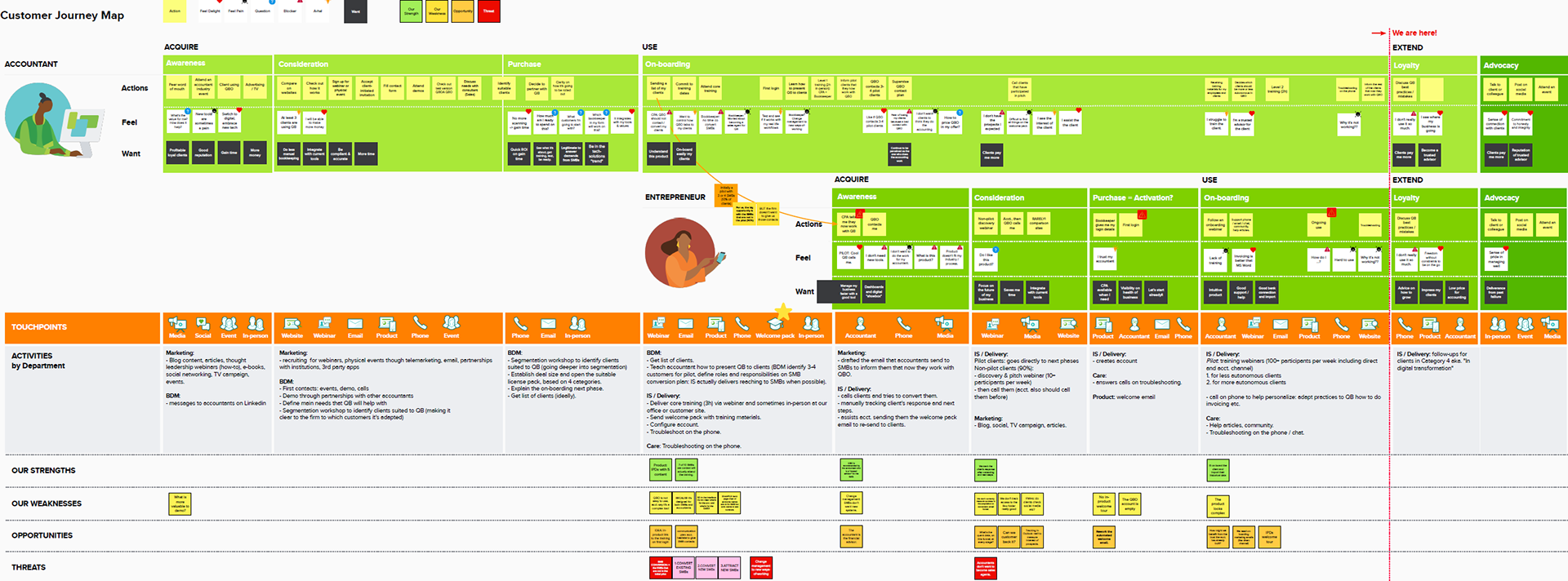
This initiative was the first of its kind in the French office. It led to inspiring other teams on how to create a local culture of experimentation and cross-functionnal collaboration.
I ensured this results-oriented super-agility by tapping into the power of design as facilitation between different points of view via a bi-weekly experience review with leads from all functions (product, care & GTM). This allowed us to always refer to a bigger picture while strategically carrying out very different types of research : from collecting internal subject-matter expert data, to qual user interviews, diary studies (to observe habits), to quant in-product experiments (like concierge & fake-o tests), to measuring commercial offerings via rapid sales pitch experiments.
Results of our discoveries were a new offering for accountants, 6pt increase in accountant NPS, 15% decrease in 90-day accountant attrition and 20% more compliance documents efortlessly collected by accountants from their entrepreneur clients.
❦
France (as opposed to US) is a high-compliance market where 90% of entrepreneurs need to have an accountant, thus for QuickBooks to be successful here as a compliance & collaboration solution, we needed to nail the core of this collaboration.
Preliminary work was to collect internal knowledge on accountant & entrepreneur segments, profiles, end-to-end workflows, core jobs-to-be-done & customer problems. We then worked with XD research who helped with two 1-month Diary Studies to help better understand the habits, problems, needs and jobs of both parties in accountant-entrepreneur collaboration.

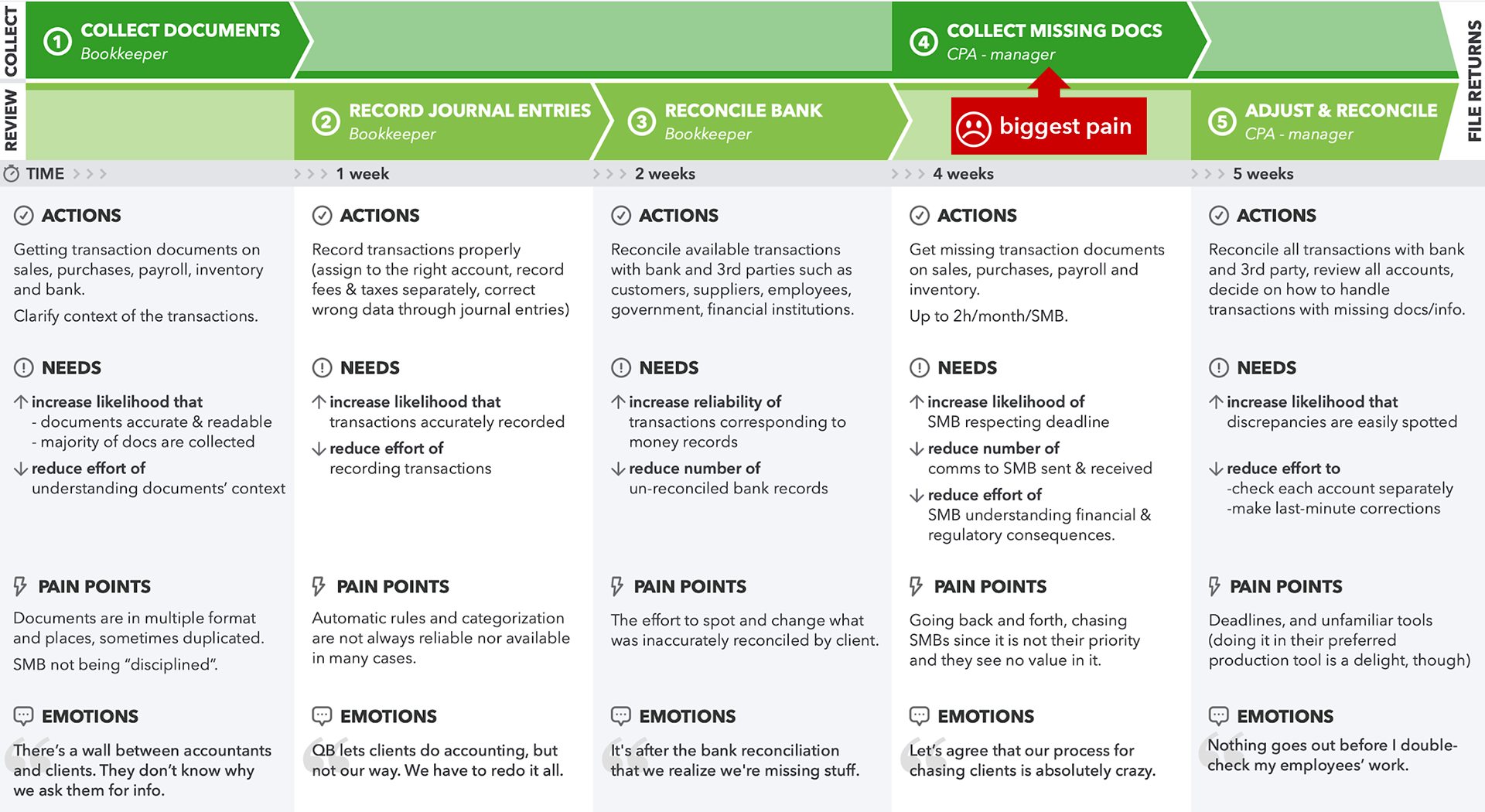
In the light of this understanding we drafted our first version of the customer problem and benefit. We found out that for accountants, the biggest pain is around collecting missing documents and verifying data about their clients' transations (30% of their time). For entrepreneneurs, their biggest pain around compliance is just getting it out of the way so they focus on what matters most aka. growing their business.
The main benefit we could provide would obviously be, in a perfect world, an effortless, timely, accurate collection of the compliance documents and data. Easier said than done :)
At this stage, we prioritized our assumptions and set up experiment loops to learn and get some precision on the most impactful solution. We used rapid very low-fidelity prototypes that we tested in 1-week sprints with 10-15 participants per week, alternating either accountants or their clients (entrepreneurs), depending on what perspective wanted to learn more about that week.

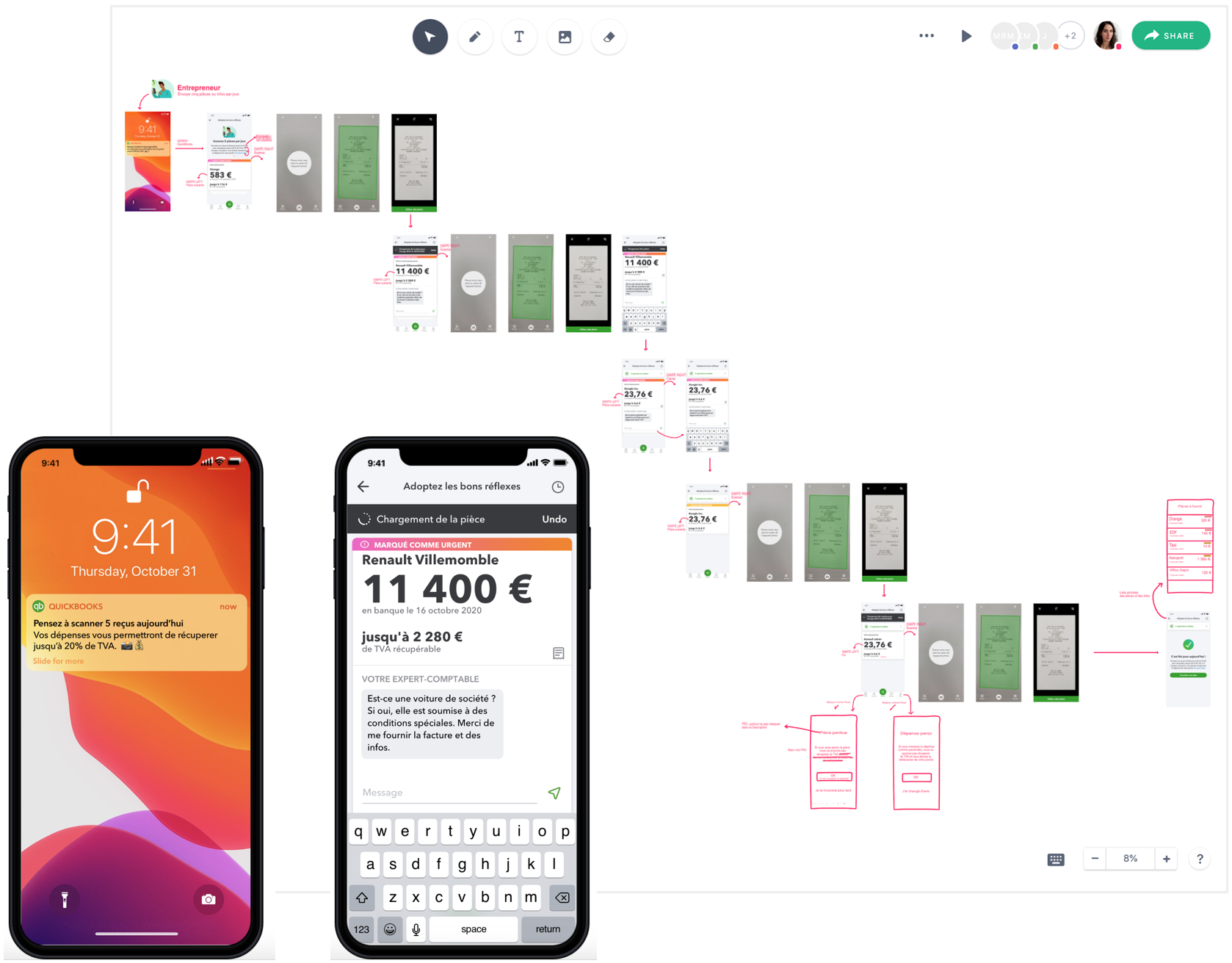
This allowed us to learn & adapt at a fast pace. The picture of what we would build (and what we should not) became more and more clear.
After 4 experiment loops on the idea of document depository mobile app for accountants' clients, we realized that although they enjoyed it, 1) it was not different enough from compet, 2) neither accountants nor their clients were willing to pay for it.
We then pivoted towards a compliance tracking daskboard and a bot sending automated requests for documents missing from bank transactions. This idea generated enormous delight from accountants and their clients and we spent the next 3 loops narrowing focus and maximising impact. We carried out a card sorting research (to rank the types of information it would collect), the tested higher quality design prototypes, but also set up 4 in-product quant (+10k users) experiments like fake-o tests to measure behaviour, interest, preferred language & touchpoints.
For this last point we actually teamed up behavioural scientists from Intuit's tech futures team, which was by the way an amazing experience :)

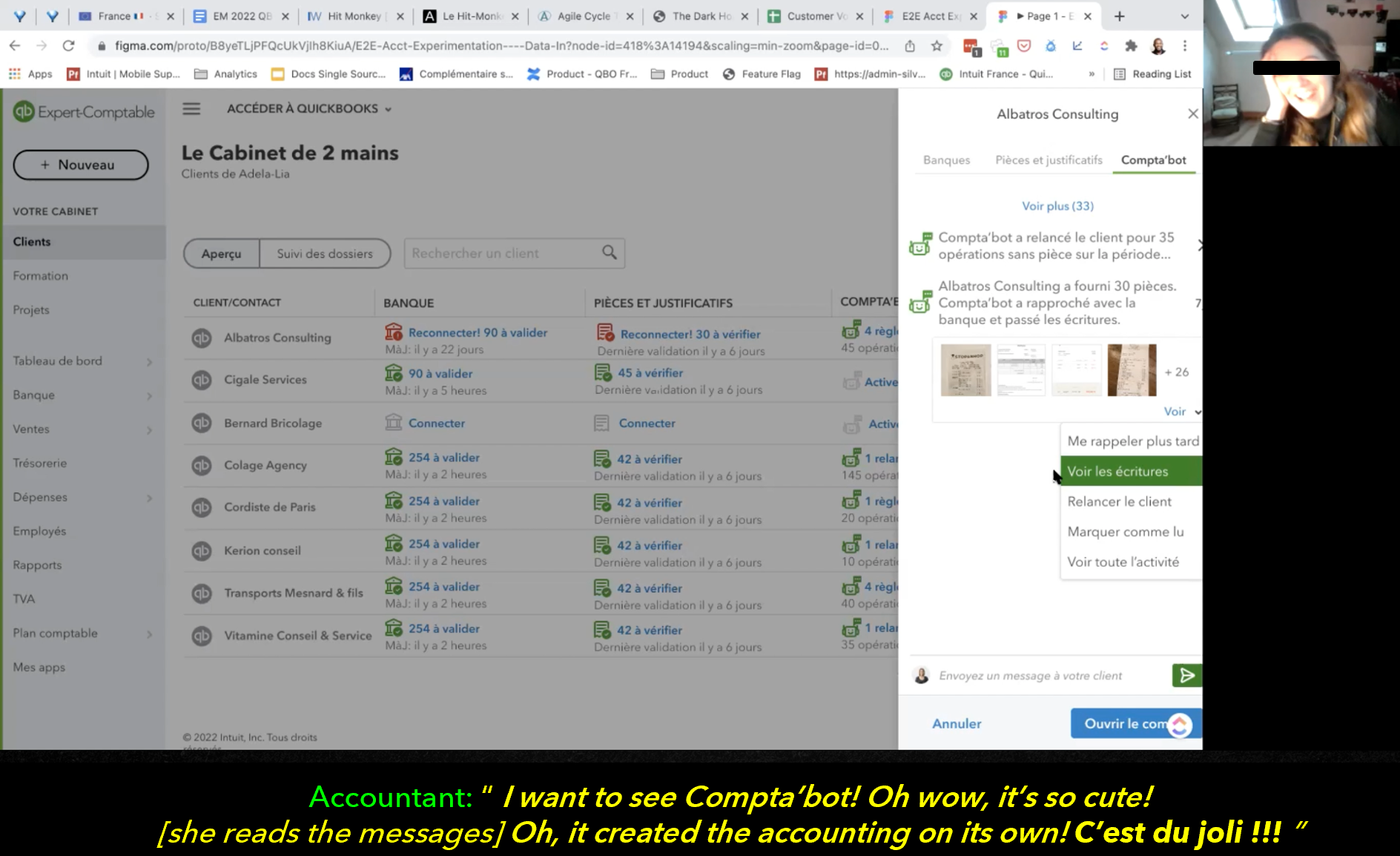
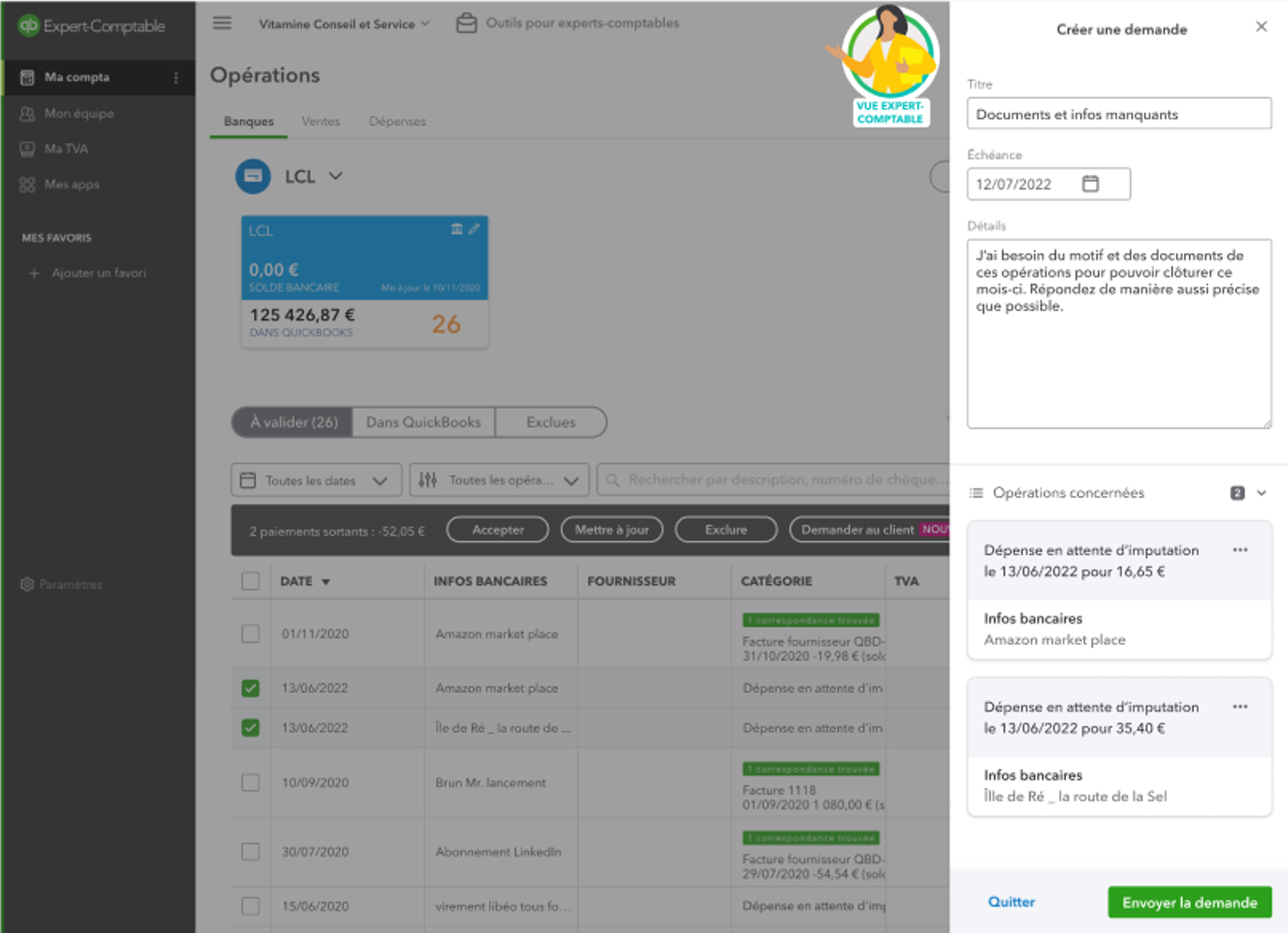
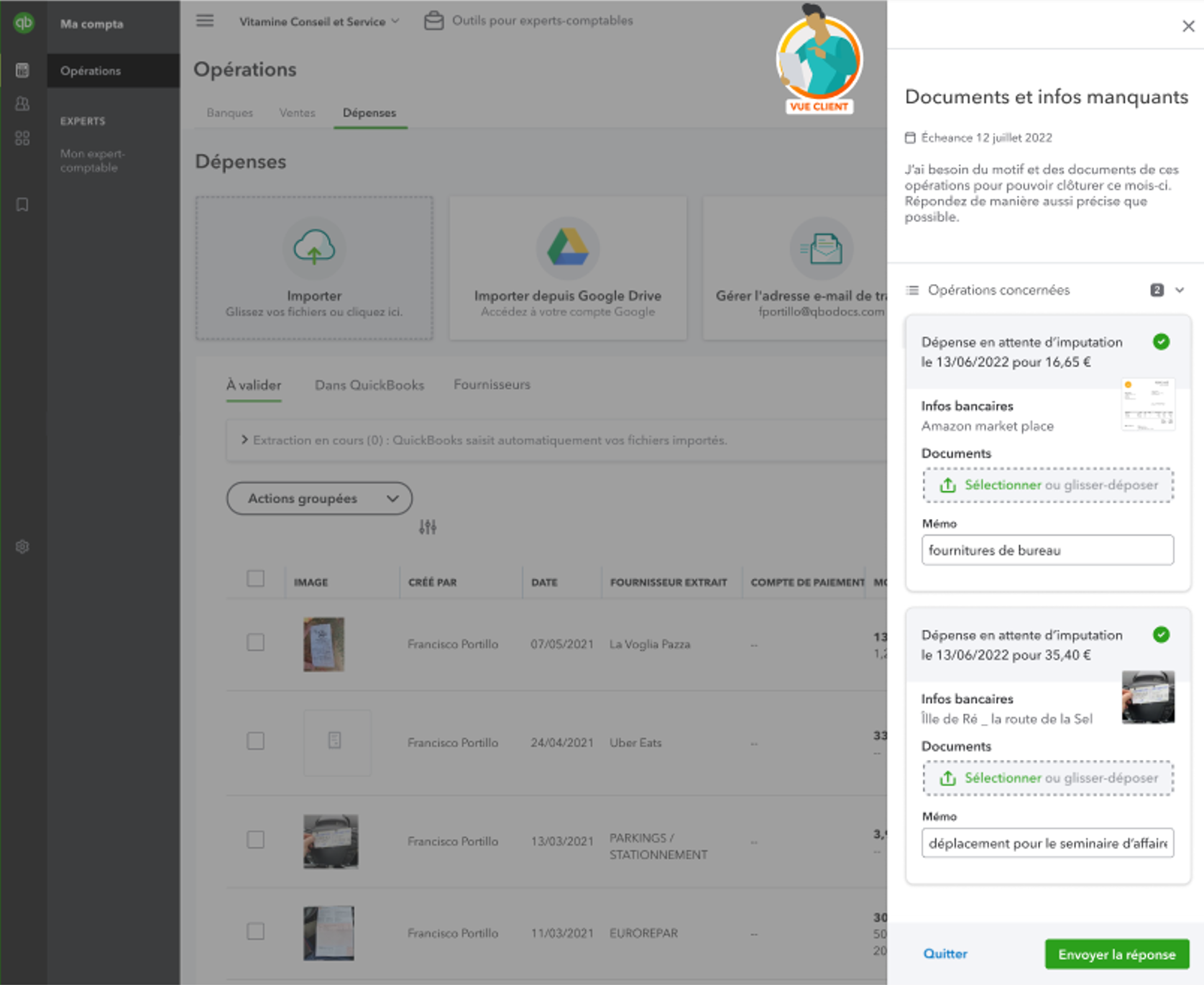
The last loops involved experimentation on the offering, pricing and roll-out as MVP. This was done in collaboration with the marketing (e-mail) and sales teams (phone calls) who advertised the new solution with to a representative group of accountants via email / phone calls respectively and compared interest with control groups who received a price promo.
The solution got accountants so excited that country management decided to build it as a new, standalone QuickBooks offering in France (Australia & Mexico were also interested!).
❦
As Intuit' co-founder Scott Cook famously said,
“Only believe results from good experiments.
Without behavior, it’s just a survey.“
Without behavior, it’s just a survey.“


